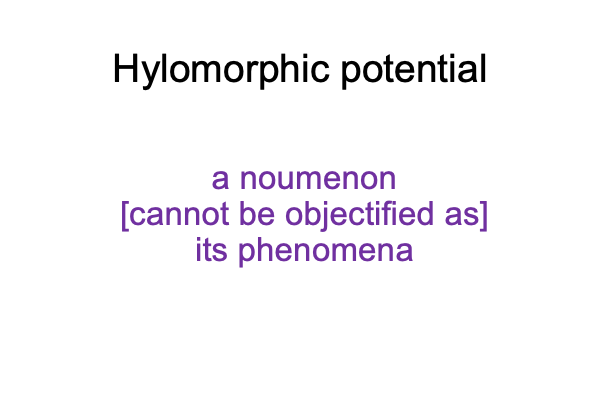Looking at Joseph Trabbic’s Essay (2021) “Jean Luc-Marion and … First Philosophy” (Part 3 of 5)
0009 The following looks like a hylomorphe, but it does not belong to the realm of actuality.

0010 This dyad expresses what is in the Positivist’s judgment.
The Positivist’s judgment constitutes the second first philosophy, arising and ruling out the first first philosophy.
0011 What is a first philosophy?
A first philosophy addresses the question, “Why is there something rather than nothing?”
This is the first question that every philosophy must confront.
0012 Many prefer to skip to the next question, “What is ‘something’?”
The first first philosophy, as practiced by scholastics of the Latin Age, says, “It must be the things of God and of everyday life.”
The second first philosophy, modern science, says, “No, it must be phenomena, the observable and measurable facets of things.”
The third first philosophy, Husserl’s phenomenology, says, “We must return to the noumenon, the thing itself, and figure out what the noumenon must be.”
But, is the thing itself the same as what the thing itself must be?0013 Here is where Jean-Luc Marion enters the picture and says, “A fourth first philosophy should place Husserl’s situating of science into perspective, by addressing the question, ‘Why are there noumena, rather than nothing?’.”
